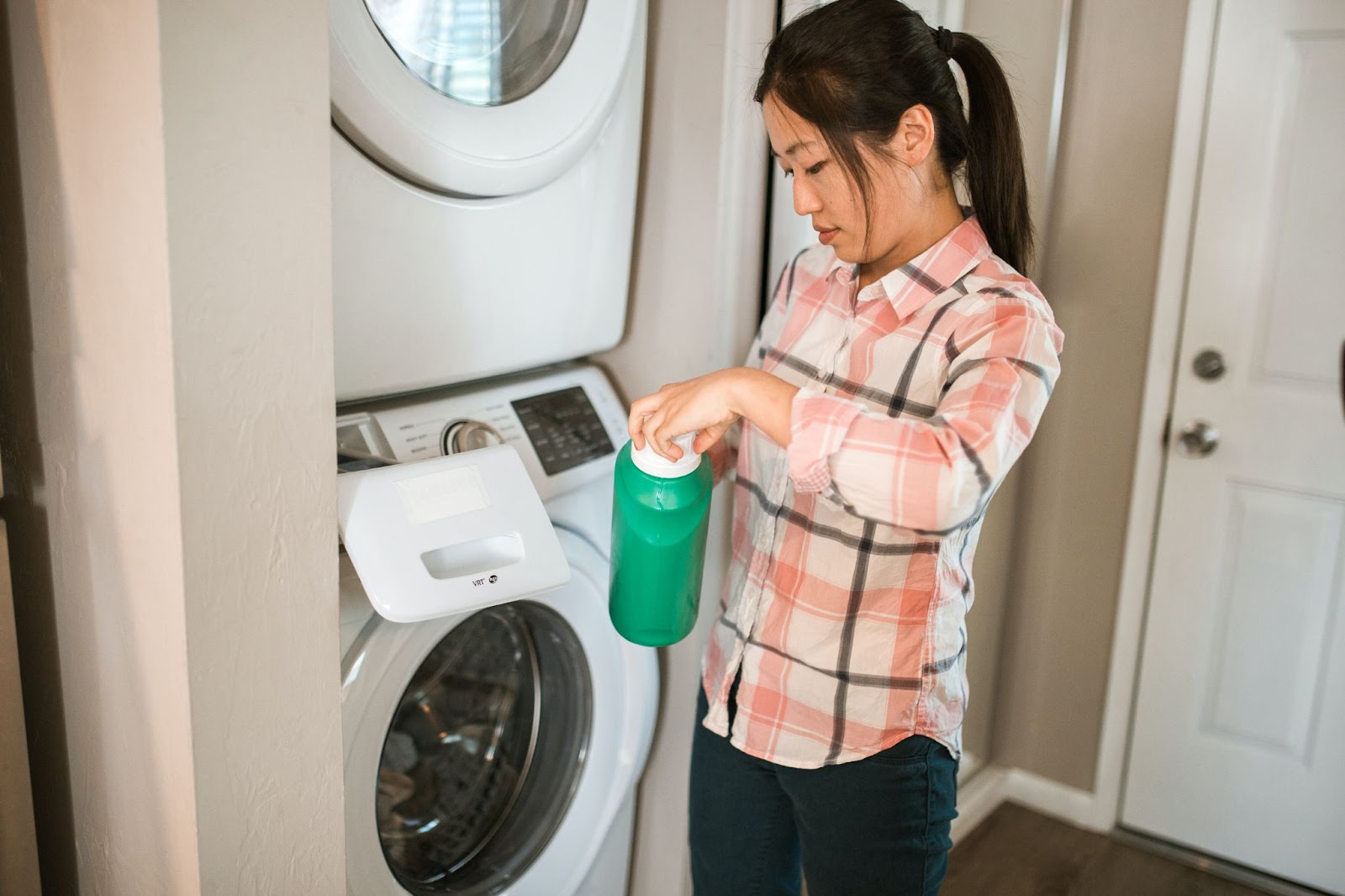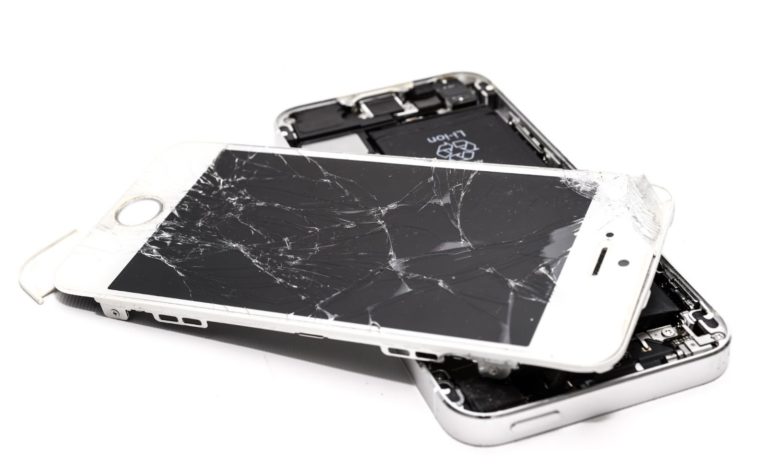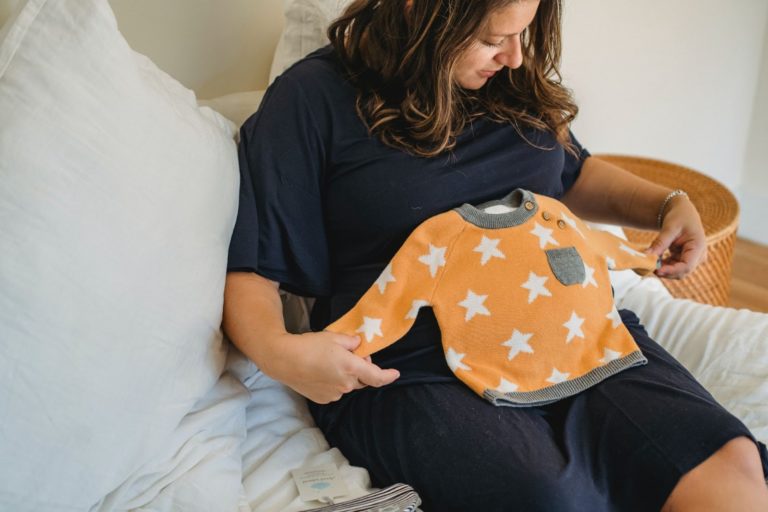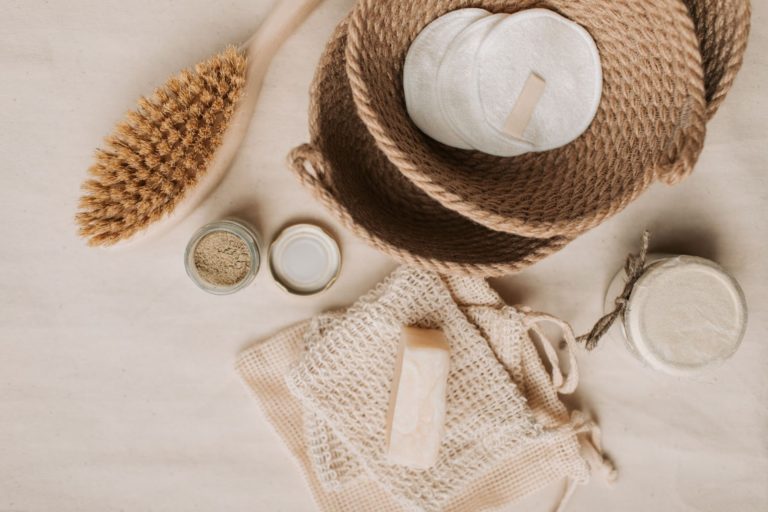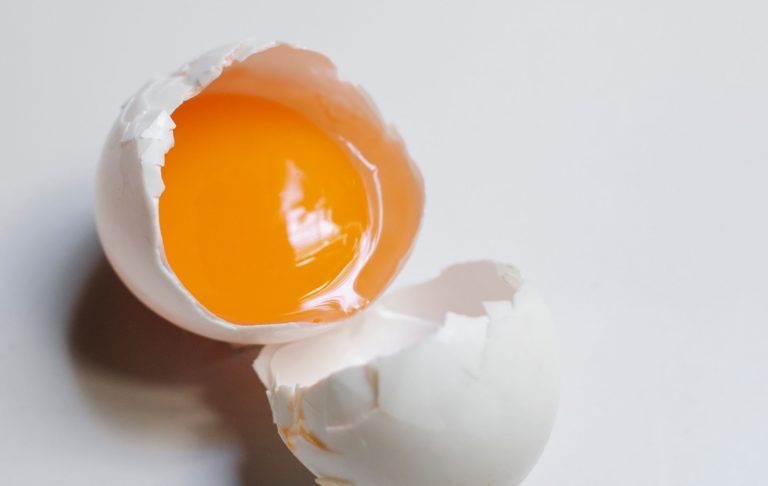Our Top Picks For The Best Eco-friendly Fabric Softeners !

How does an eco-friendly fabric softener work?
A significant amount of strain is applied to the fabric whenever it is put through the process of being washed in a machine. When the clothing are dried in the air, the surface fibers become stretched, squished, and frayed, which subsequently causes the fibers to become more rigid. This phenomenon is especially common in natural materials such as cotton and wool.
Using a fabric softener helps to restore the fibers to their more natural, smoother state by calming and normalizing the agitated fibers so that they may be used again. Fabric softeners work to reduce the static charge that is created when clothes rub against one another during the washing and drying processes by reducing the friction that occurs during those processes.
Unfortunately, in order to make clothes feel softer and smell better, the vast majority of commercial fabric softeners rely on the use of potentially hazardous chemicals such as toluene, polymers, and parabens.
On the other hand, the most effective environmentally friendly fabric softeners achieve the same results through the use of natural compounds and/or physical mechanisms.
During the washing cycle, chemicals derived from plants and minerals are utilized by liquid softeners. With the assistance of the steam produced during the drying process, dryer sheets allow their components to gradually disperse into the air. As the wool dryer balls tumble around the drum, they physically soften the clothes and lessen the amount of static that is created.
What to See in a Fabric Softener?
When searching for an environmentally friendly fabric softener, one of the most important characteristics to look for is that it is constructed from natural and organic components. In no way should the product contain any plastics, artificial dyes, or colorants of any kind.
If you look at the list of ingredients, you will most likely find some that sound terrifying, such as “Triethanolamine Dialkylated Methosulphate.” However, these are simply the scientific names for plant-derived compounds (this particular one softens fabrics) (this particular one softens fabrics).
Because so many cleaning products involve the use of animals in their testing, choosing a fabric softener that does not involve any form of animal testing at all should be one of your top priorities. Products that are recyclable or that can be composted in their entirety have a far lower impact on the environment, particularly if the packaging for those products is likewise recyclable and manufactured with recycled materials.
And naturally, the manufacturer of the fabric softener ought to be an organization that shows concern for the environment and that promotes the use of sustainable business practices and initiatives.
Best Eco-friendly Fabric Softeners
Here are the top eco friendly fabric softeners on the market:
Seventh Generation Fabric Softener
This fabric softener is made with natural ingredients, including plant-based enzymes and essential oils. It is also eco-friendly, using less energy than other fabric softeners. It is also non-toxic, and is safe to use on all fabrics.
The liquid fabric softener is manufactured with materials derived from plants, and it is a USDA Certified Biobased Product that contains 84% plant-based ingredients. In addition to making garments softer, it does not contain any colors or artificial perfumes in its production.
Because the softening agent in our Fabric Softeners is derived from plants, you won’t have to wonder how your garments become so comfortable to wear once you use them.
Green Works Fabric Softener
Its liquid formula, which is based on soy, leaves garments feeling smooth to the touch and delicately smelling of lavender. This is due to an infusion of essential oils that are of the highest purity, which works in harmony with natural, non-toxic substances.
With an 8x concentration, you will be able to obtain one hundred loads out of a single bottle. This fabric softener is made with plant-based ingredients and essential oils. It is also eco-friendly, using less energy than other fabric softeners.
Honest Company Fabric Softener
This fabric softener is made with natural ingredients, including plant-based enzymes and essential oils. It is also eco-friendly, using less energy than other fabric softeners.
Our cutting-edge formulation employs plant-derived chemicals and natural essential oil blends to soften, freshen, and minimize static cling, and it is hypoallergenic as well as free of any materials derived from animals.
Ecover
Ecover’s fabric softener, like those created by a number of other companies that strive to provide the most environmentally friendly product possible, is made entirely from plant-based materials and also includes a light, clean plant-based fragrance.
It is the brand that is most easily accessible to me in the United Kingdom (their sister firm in the United States is called Method), and it is also one of the more cost-effective options available from this selection.
The softener made by Ecover is completely biodegradable, and it does so in a very short amount of time. Additionally, both the bottle and the cap can be recycled in their entirety.
Because it lessens the amount of static cling, it not only makes your clothes feel more comfortable against your skin, but it also makes ironing the clothes easier after they have dried.
Soganics’
Australia’s Soganics makes an eco-friendly liquid fabric softener. The plant-based recipe uses only natural, vegan components.
The formula contains no colorants or preservatives, just a natural lavender scent, so it’s safe for sensitive skin.
Soganics was founded by a group of persons with easily-irritated skin. This certified organic fabric softener is concentrated, so it will last for 42 loads of washing on average.
Friendsheep White Eco Dryer Balls
There are a rising number of New Zealand wool dryer balls on the market. Friendsheep employs disabled Nepalese women to hand-make their product in a safe, equitable atmosphere.
Friendsheep uses no chemicals or additives, making them safe for newborns and sensitive skin. Organic, Leaping Bunny-certified, cruelty-free New Zealand wool is used.
Packaging is recyclable and compostable. Friendsheep Wool gives 20% of earnings to environmental and humanitarian groups. Friendsheep makes animal-themed dryer balls in addition to white ones.
Molly’s Suds
Molly’s Suds was founded by a mom and pediatric nurse to make safe, chemical-free fresh clothes more accessible.
Vegan, plant-based fabric softener sheets created from plant essences and essential oils. As designed, they’re free of waxes, colors, harsh smells, and animal byproducts.
You can choose lavender-scented or fragrance-free. Each page is compostable/recyclable. The packaging is manufactured from recycled cardboard and can be recycled, making them eco-friendly.
Try Making a DIY Fabric Softener !
Vinegar is the best natural alternative to commercial fabric softeners. A simple solution is to add a quarter to a half cup of white distilled vinegar to the fabric softener dispenser in your washing machine.
Putting your garments through the wash won’t leave them smelling like vinegar, despite popular belief. You may manufacture your own eco-friendly fabric softener from infused vinegar if you like the idea of giving your clothes a pleasant scent.
Here’s what you’ll require:
- Big canning jar with a lid
- A white vinegar that has been distilled to remove impurities
- Fragrant components (herbs, citrus peel, and essential oils all work)
Method:
- Start by heating the vinegar in a saucepan or microwave.
- Throw in your scented ingredients while the vinegar is warming up (but not too much!). It only takes about 20 drops of essential oil per gallon.
- After the vinegar has warmed, it should be poured into the jar and the lid should be put on.
- If you’re using solid scented goods, let the vinegar steep for a couple of weeks before filtering them out.
